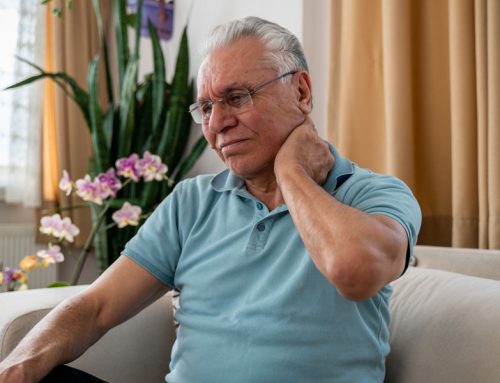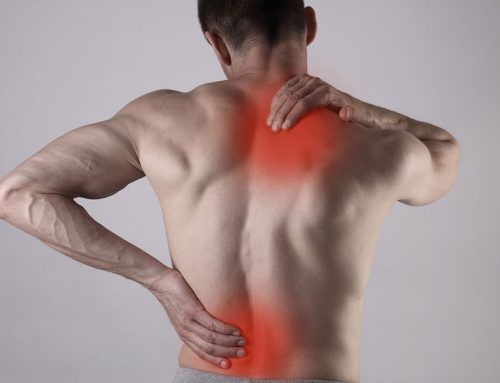Fact: Adequate Coenzyme Q10 is essential for our cells’ generation of ATP energy.

For cells and tissues with high energy needs, tissues such as heart muscle tissue and skeletal muscle tissue, there is a constant demand for CoQ10 molecules.
Adenosine triphosphate (ATP) molecules have been called the energy currency of the cells. ATP molecules have to be produced and stored for later use, similar to storing money in a bank. All of our cells contain ATP, and the ATP provides the energy for almost all cellular processes. ATP is, so to speak, what drives the cellular machinery.
CoQ10 molecules are vitamin-like substances that are an essential component of the oxidative phosphorylation process in the cells’ mitochondria; they are essential to the process that converts the energy from ingested carbohydrates and fatty acids into ATP [Schniertshauer 2016].
Maintaining an adequate supply of Coenzyme Q10
Unfortunately, as we pass through middle age and enter our senior years, our cells produce steadily less Coenzyme Q10. It is not possible to make up the difference with changes in our diets. We really do need a good CoQ10 supplement as we get older [Kalén 1989].
Equally unfortunate is the fact that statin medications and bisphosphonate medications can inhibit the cells’ bio-synthesis of Coenzyme Q10. Again, supplementation with a well-formulated CoQ10 supplement seems advisable [Okuyama 2015].
Coenzyme Q10 and good heart health
CoQ10 supplements are perhaps the first and best choice to enhance energy availability because of CoQ10’s central role in the cellular generation of ATP energy. CoQ10 deficiency is associated with insufficient generation of the ATP molecules needed to maintain cell function. Too little Coenzyme Q10 is associated with dysfunctional cellular efficiency and low energy [Littarru 2011].
Supplementation with a well-formulated CoQ10 supplement has proved effective in reducing morbidity and mortality in chronic heart failure patients [Mortensen 2014] and in reducing cardiovascular mortality and improving heart function in community living senior citizens [Alehagen 2013].
Documentation: CoQ10 Supplementation and ATP Generation
Cordero and a team of researchers in Spain have carried out a study in which they have measured the ATP concentrations in blood mononuclear cells from fibromyalgia patients and from control subjects [Cordero 2012].
Note: The blood mononuclear cells are blood cells such as the monocytes, lymphocytes, and macrophages. They have round nuclei. They are not to be confused with red blood cells and platelets.
At the start of the study, the Spanish researchers observed concentrations of CoQ10 and ATP in the blood mononuclear cells of the fibromyalgia patients that were significantly lower than the CoQ10 and ATP levels in blood cells from normal controls [Cordero 2012].
In fact, the ATP levels in the blood mononuclear cells of the fibromyalgia patients were decreased down to only 70% of the control values [Cordero 2012].
The data from the Spanish study showed that supplementation for three months with a documented well-formulated CoQ10 product was associated with a significant increase in blood levels of CoQ10 and in blood levels ATP in the fibromyalgia patients. For best effect, the Spanish researchers administered 300 mg of Coenzyme Q10 daily, divided into three separate doses of 100 mg, each taken with a meal.
Note: Divided doses are known to give a better CoQ10 absorption than one-time big doses [Singh 2005]. It is also important to take the CoQ10 supplement with a meal containing some fat; the fat will facilitate the transfer and absorption of the Coenzyme Q10 in the small intestines [Langsjoen 1994].
Importance of the Cordero CoQ10 and ATP study
To summarize: Cordero and the team of researchers documented that daily supplementation with Coenzyme Q10 in the ubiquinone form was associated with important outcomes:
- a significant increase of CoQ10 levels after treatment
- a significant increase of ATP levels after treatment
Thus, the Cordero study [2012] provides solid clinical evidence that daily supplementation with Coenzyme Q10 is associated with significant increases in the generation of ATP energy.
Moreover, the researchers observed the following significant outcomes that were associated with the daily CoQ10 supplementation of the fibromyalgia patients:
- reduced levels of pain and fatigue
- reduced levels of inflammation
- reduced levels of oxidative stress
- increased levels of the neurotransmitter serotonin
- reduced incidence and severity of depression
Formulation of the CoQ10 supplement more important the form
A different set of Spanish researchers led by Prof. Navas and Prof. Lopez-Lluch have carried out a double-blind crossover study of different CoQ10 formulations. Their study has showed that the absorption and bioavailability of different CoQ10 formulations will vary significantly [Lopez-Lluch 2019].
Prof. Lopez-Lluch has stated that the solubilization of the Coenzyme Q10 – breaking CoQ10 crystals down to single CoQ10 molecules – and the use of better carrier oils as well as the use of exact heating and cooling procedures make the difference in absorption and bioavailability [Lopez-Lluch 2019].
Beware: there are many undocumented marketing claims for superior absorption. Documentation is all important. It is best to buy a CoQ10 product that has absorption and bio-availability in clinical trials.
Recent evidence also shows that many marketing claims for the ubiquinol form of Coenzyme Q10 are misleading [Mantle & Dybring 2020; Judy 2021]. It is not necessary to take a ubiquinol supplement to get enough ubiquinol in the blood and blood lipoproteins; a good ubiquinone supplement will do the job [Mohr 1992].
Summary and Conclusion
We have solid scientific evidence from a clinical trial that daily supplementation with a well-formulated ubiquinone CoQ10 product increases ATP energy levels significantly.
Sources
Alehagen U, Johansson P, Björnstedt M, Rosén A, Dahlström U. Cardiovascular mortality and N-terminal-proBNP reduced after combined selenium and coenzyme Q10 supplementation: a 5-year prospective randomized double-blind placebo-controlled trial among elderly Swedish citizens. Int J Cardiol. 2013 Sep 1;167(5):1860-6.
Cordero MD, Cano-García FJ, Alcocer-Gómez E, De Miguel M, Sánchez-Alcázar JA. Oxidative stress correlates with headache symptoms in fibromyalgia: Coenzyme Q10 effect on clinical improvement. PLoS One. 2012;7(4):e35677.
Judy WV. The Instability of the Lipid-Soluble Antioxidant Ubiquinol: Part 1-Lab Studies. Integr Med (Encinitas). 2021 Aug;20(4):24-28.
Judy WV. The Instability of the Lipid-Soluble Antioxidant Ubiquinol: Part 2-Dog Studies. Integr Med (Encinitas). 2021 Oct;20(5):22-26.
Kalén A, Appelkvist EL, Dallner G. Age-related changes in the lipid compositions of rat and human tissues. Lipids. 1989 Jul;24(7):579-84.
Langsjoen H, Langsjoen P, Willis R, Folkers K. Usefulness of Coenzyme Q10 in clinical cardiology: a long-term study. Mol Aspects Med. 1994;15s s165-s175.
Littarru GP, Lambrechts P. Coenzyme Q10: multiple benefits in one ingredient. OCL 2011;18(2):76-82.
López-Lluch G, Del Pozo-Cruz J, Sánchez-Cuesta A, Cortés-Rodríguez AB, Navas P. Bioavailability of coenzyme Q10 supplements depends on carrier lipids and solubilization. Nutrition. 2019 Jan;57:133-140.
Mantle D, Dybring A. Bioavailability of Coenzyme Q10: An Overview of the Absorption Process and Subsequent Metabolism. Antioxidants (Basel). 2020 May 5;9(5):386.
Mohr D, Bowry VW, Stocker R. Dietary supplementation with coenzyme Q10 results in increased levels of ubiquinol-10 within circulating lipoproteins and increased resistance of human low-density lipoprotein to the initiation of lipid peroxidation. Biochim Biophys Acta. 1992 Jun 26;1126(3):247-54.
Mortensen SA, Rosenfeldt F, Kumar A, Dolliner P, Filipiak KJ, Pella D, Alehagen U, Steurer G, Littarru GP; Q-SYMBIO Study Investigators. The effect of coenzyme Q10 on morbidity and mortality in chronic heart failure: results from Q-SYMBIO: a randomized double-blind trial. JACC Heart Fail. 2014 Dec;2(6):641-9.
Okuyama H, Langsjoen PH, Hamazaki T, Ogushi Y, Hama R, Kobayashi T, Uchino H. Statins stimulate atherosclerosis and heart failure: pharmacological mechanisms. Expert Rev Clin Pharmacol. 2015 Mar;8(2):189-99.
Schniertshauer D, Müller S, Mayr T, Sonntag T, Gebhard D, Bergemann J. Accelerated Regeneration of ATP Level after Irradiation in Human Skin Fibroblasts by Coenzyme Q10. Photochem Photobiol. 2016 May;92(3):488-94.
Singh RB, Niaz MA, Kumar A, Sindberg CD, Moesgaard S, Littarru GP. Effect on absorption and oxidative stress of different oral Coenzyme Q10 dosages and intake strategy in healthy men. Biofactors. 2005;25(1-4):219-24.
The information presented in this review article is not intended as medical advice and should not be used as such.
15 January 2022







Leave A Comment